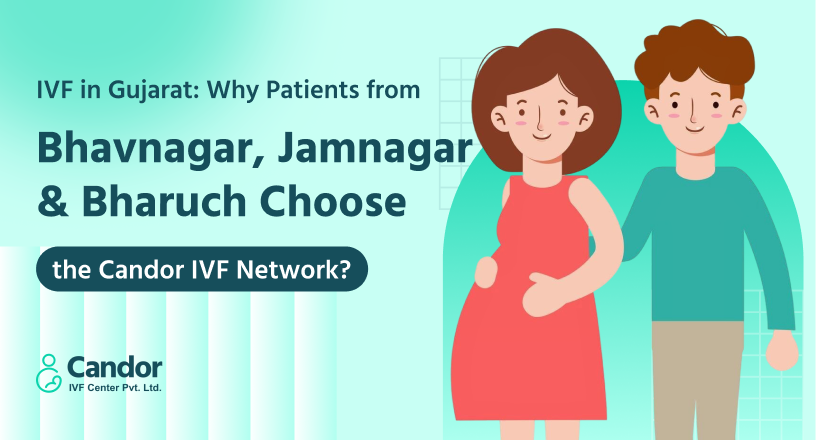In recent years, IVF treatment has been gaining popularity due to its high success rate, world-class technology, and experienced doctors which have made the dream of parenthood true for many couples who want to become parents.
Another reason behind the success rate of IVF is fertility medications which have a huge impact on women’s health and fertility journey.
But sometimes, these medications could negatively impact health and may cause adverse effects from taking fertility medications during an IVF process.
Know here how fertility medications are used for IVF treatment and their types.
What are the benefits of Fertility Medications in IVF Treatment?
When helping women through the process of in vitro fertilization (IVF), our fertility experts at CandorIVF often prescribe certain fertility medications. These drugs commonly work as certain hormone boosters responsible for developing eggs, making them mature, and controlling when they’re ready for fertilization.
Taking these medications increases the chances of a successful and healthy pregnancy because they make women more fertile during the important steps of collecting eggs and transferring embryos.
The medications also help doctors time each part of the procedure to match the needs of the patients, making the whole process more effective and increasing the likelihood of a positive outcome.
In simple terms, these fertility medications in IVF treatment play a crucial role in ensuring everything happens at the right time, increasing the chances of a successful pregnancy and making the healing process smoother for the patients.
Not just that but in some cases, fertility drugs during the IVF process play a vital role in ensuring that everything is under control.
Now it’s time to move forward and know the types of fertility drugs
4 types of fertility medications
When it comes to in-vitro fertilization (IVF), there are many essential medications and a range of dosages prescribed by healthcare professionals.
But it depends on various factors including the type of IVF cycle being used the patient’s requirements, their fertility journey, whether a female patient is attempting to get pregnant, and many physical and physiological factors.
However, many types of fertility medications are prescribed including;
Clomiphene – Also known as Serophene or Clomid, is a medication that blocks estrogen. Gonadotropin-releasing hormone (GnRH), follicle-stimulating hormone (FSH), and luteinizing hormone (LH), which in turn stimulate the ovaries to release eggs.
FSH Follicle-Stimulating Hormone:- often prescribed for boosting the production of eggs, more Follicle-stimulating hormone (FSH) may be administered to support the production of eggs
Human Chorionic Gonadotropin: The hormone human chorionic gonadotropin (HCG) is used to stimulate the ovaries of a woman to release healthy eggs during fertility treatment.
Human Menopausal Gonadotropin: Combining FSH and LH, this fertility medication, known as human menopausal gonadotropin (HMG), can be used alongside clomiphene to enhance its effectiveness in promoting egg development and release.
Remember that this consultation procedure varies from person to person and the specific medications and types of drugs required for your treatment will be determined.
Among such types of medication, some can be taken via injection, and others can be taken orally.
Side effects you may experience
The chances are you may experience some of the side effects of fertility medication in IVF treatments.
Typically these side effects are normal in oral medications (clomid) than injections (gonadotropins).
- Hot flashes
- Bloating
- Abdominal pain
- Headaches
- Tender breasts
- Weight gain
- Dizziness
- Nausea
- Upset stomach
- Abdominal tenderness
When to take these fertility drugs?
During the fertility journey and IVF treatment, essential medications are needed to take on a patient. Taking particular drugs at the right time is crucial to support IVF treatment.
If you are already going through this process, you should take the prescribed reproductive medications as instructed by your fertility professional.
To maximize the effectiveness of fertility care, it’s crucial to adhere to the scheduled appointments for therapy. Deviations from the recommended schedule or incorrect dosage and administration of fertility medicine may contribute to the possibility of an unsuccessful IVF cycle or a reduced likelihood of successful conception.
Discover about advanced fertility treatments
Take note that fertility medication is only one part of your successful IVF process. There are so many other things like lifestyle, underlying disease, diet, and physical activities that play crucial roles into to boost their fertility
If you’re interested in learning more about fertility treatments and how they can assist you in building the family you’ve dreamed of, reach out to our team of fertility specialists at the well-known IVF Center in Surat.
We’ll collaborate closely with you check your conditions, and provide detailed discussions to empower you in making well-informed decisions about your fertility journey.








